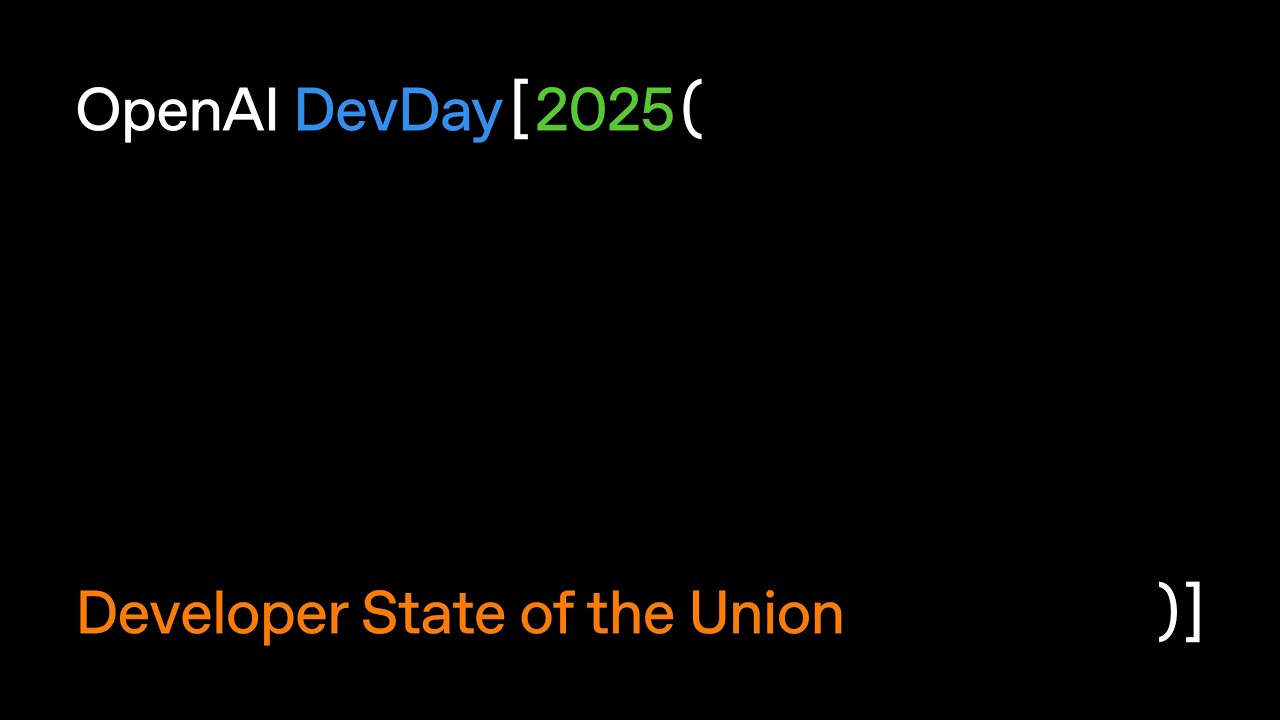The Developer State of the Union highlighted OpenAI’s journey from foundational AI research to empowering developers worldwide through versatile tools like GPT-5, Codex, and new APIs for building intelligent agents and interactive applications. Key announcements included advanced models for coding and multimedia generation, the Agent Kit for streamlined AI agent creation, and the Apps SDK enabling seamless integration of external tools within ChatGPT, ushering in a new era of AI-driven software development.
Greg Brockman opened the Developer State of the Union by reflecting on OpenAI’s journey since its founding in 2015. He outlined the original three-step plan: solve reinforcement learning, solve unsupervised learning, and gradually learn really complicated things. Early successes included the 2017 Dota 2 project demonstrating reinforcement learning and the unsupervised sentiment neuron paper showing emergent semantics from next-step prediction. This foundation led to GPT-3 in 2019, which was powerful enough to build products but instead of focusing on specific verticals like healthcare or education, OpenAI chose to release the technology via an API, empowering developers worldwide to create diverse applications. Greg emphasized that developers have been key to OpenAI’s mission and success.
Olivia Gunmore, leading OpenAI’s platform team, highlighted four key areas of focus: building intelligent models, accelerating coding, helping build agents, and scaling applications in ChatGPT. She introduced GPT-5, designed for agentic tasks with strong instruction-following and tool use capabilities, and shared best practices for prompt design. Olivia also announced the release of Sora 2 and Sora 2 Pro video generation models, smaller and more cost-effective voice and image generation models, and the open-source GPT OSS models that have seen tremendous community adoption. These models enable developers to build powerful AI applications locally or in the cloud with flexibility and affordability.
The presentation then shifted to Codex, OpenAI’s AI coding assistant, which now integrates across terminals, IDEs, GitHub, and the cloud. The new GPT-5 Codex model excels at complex coding tasks and real-time collaboration. New features include Slack integration for assigning coding tasks, a Codex SDK for embedding coding agents into workflows and apps, and support for MCP tools like Figma and Chrome DevTools. Codex also offers automated code reviews on GitHub, catching bugs before production. A live demo showed Codex autonomously adding dark mode and mobile support to an app, illustrating how AI can accelerate software development and team productivity.
Next, the focus was on building AI agents using the Responses API and the new Agent Kit. The Responses API supports multimodal models, tool calls, and preserves reasoning across turns, making it ideal for complex agent workflows. Agent Kit provides customizable building blocks and visual tools to simplify agent creation. Viral from RAMP demonstrated how they built a procurement agent that automates software purchasing, drastically reducing the time from weeks to minutes. The agent builder, widget builder, and trace grading tools enable rapid iteration, deployment, and monitoring of agents, improving accuracy and user experience in real-world applications.
Finally, Katya from the developer experience team showcased the new Apps SDK for building interactive applications inside ChatGPT. Using the MCP protocol, developers can connect external tools and UI components seamlessly to ChatGPT conversations. A demo showed controlling venue lighting and composing music sequences directly through ChatGPT, highlighting the SDK’s flexibility and real-time state synchronization. The SDK supports any web framework, allowing developers to create rich, personalized, and immersive experiences for users. OpenAI plans to open app submissions later this year, enabling developers to reach hundreds of millions of ChatGPT users, marking a new era of AI-powered software development driven by the developer community.
